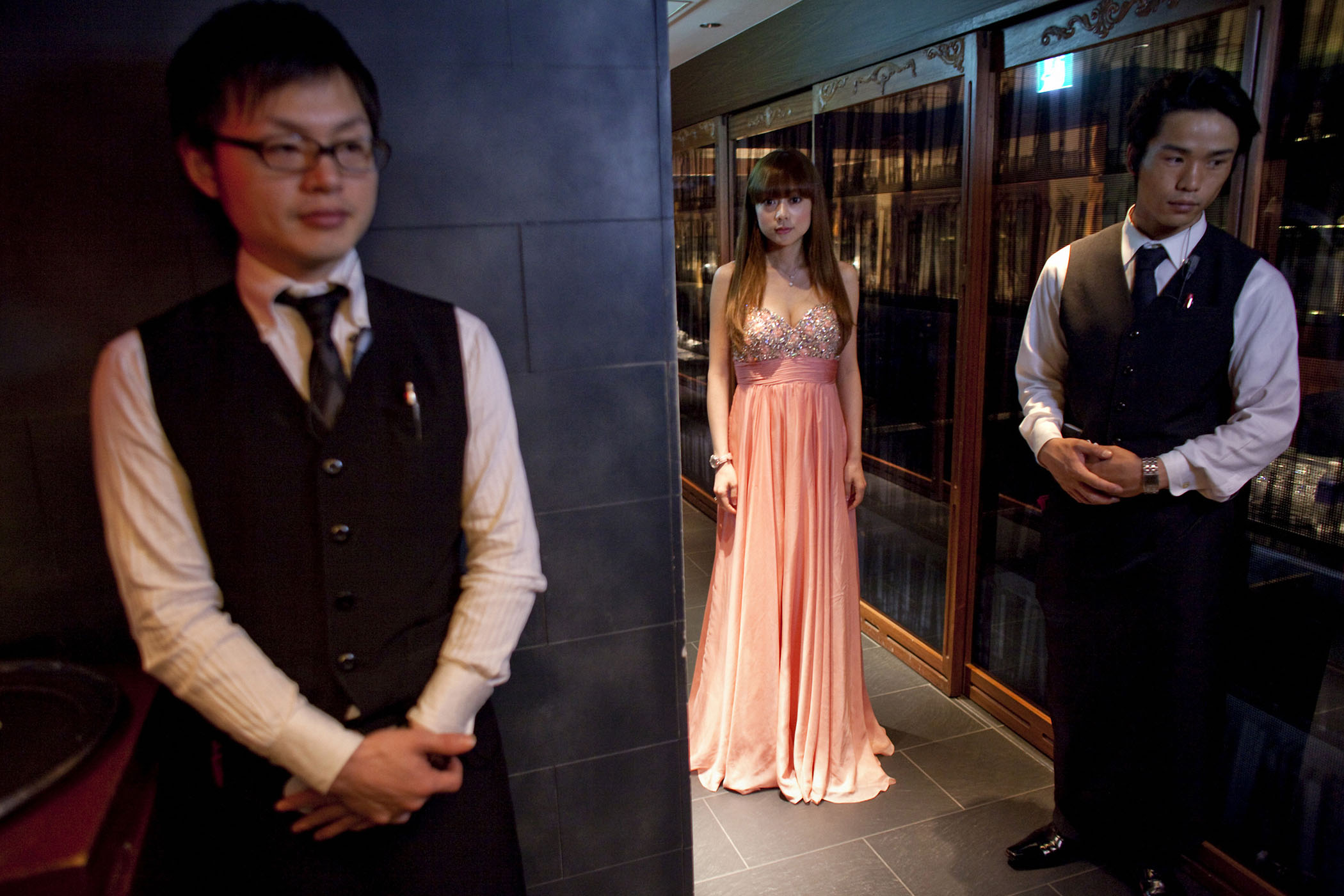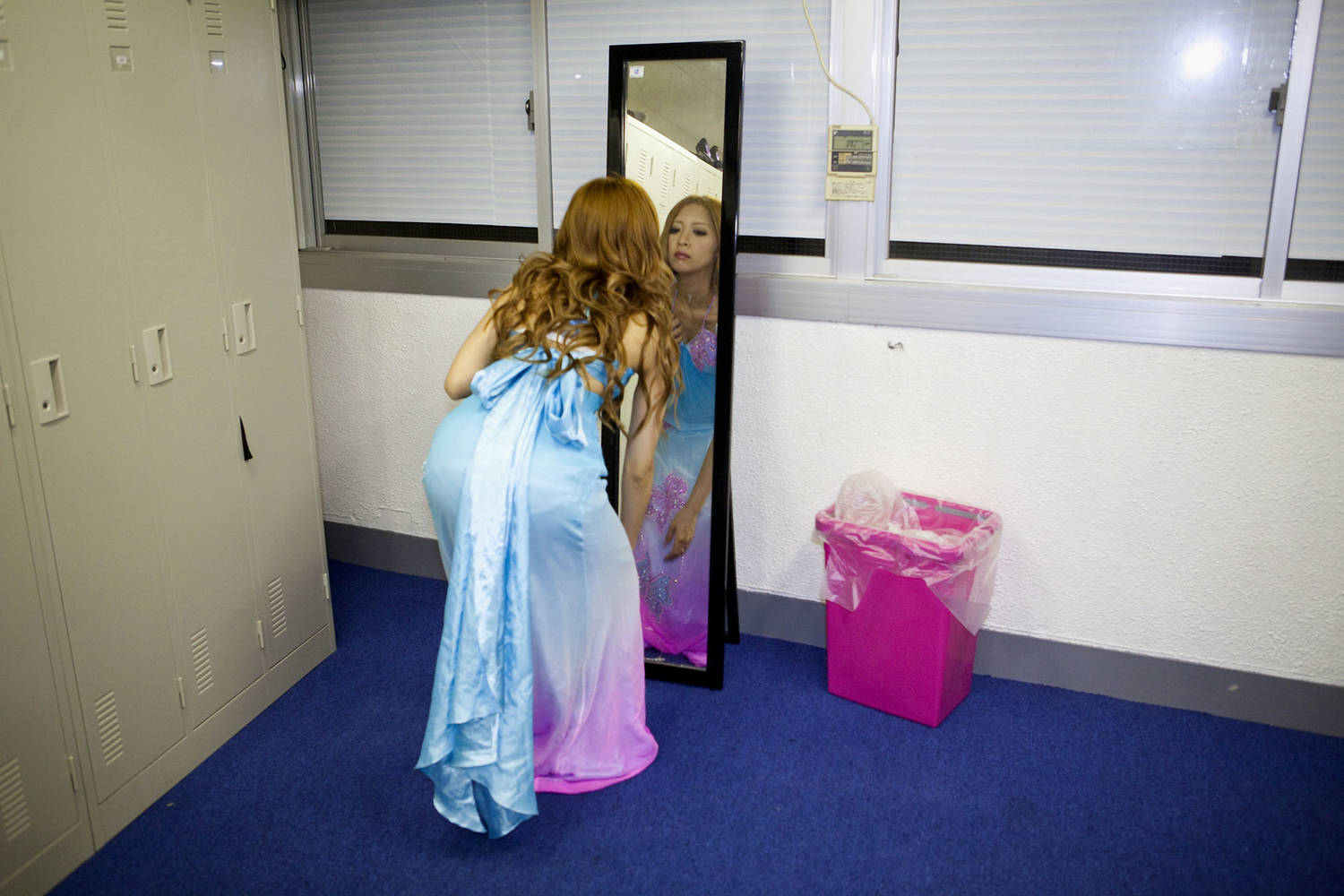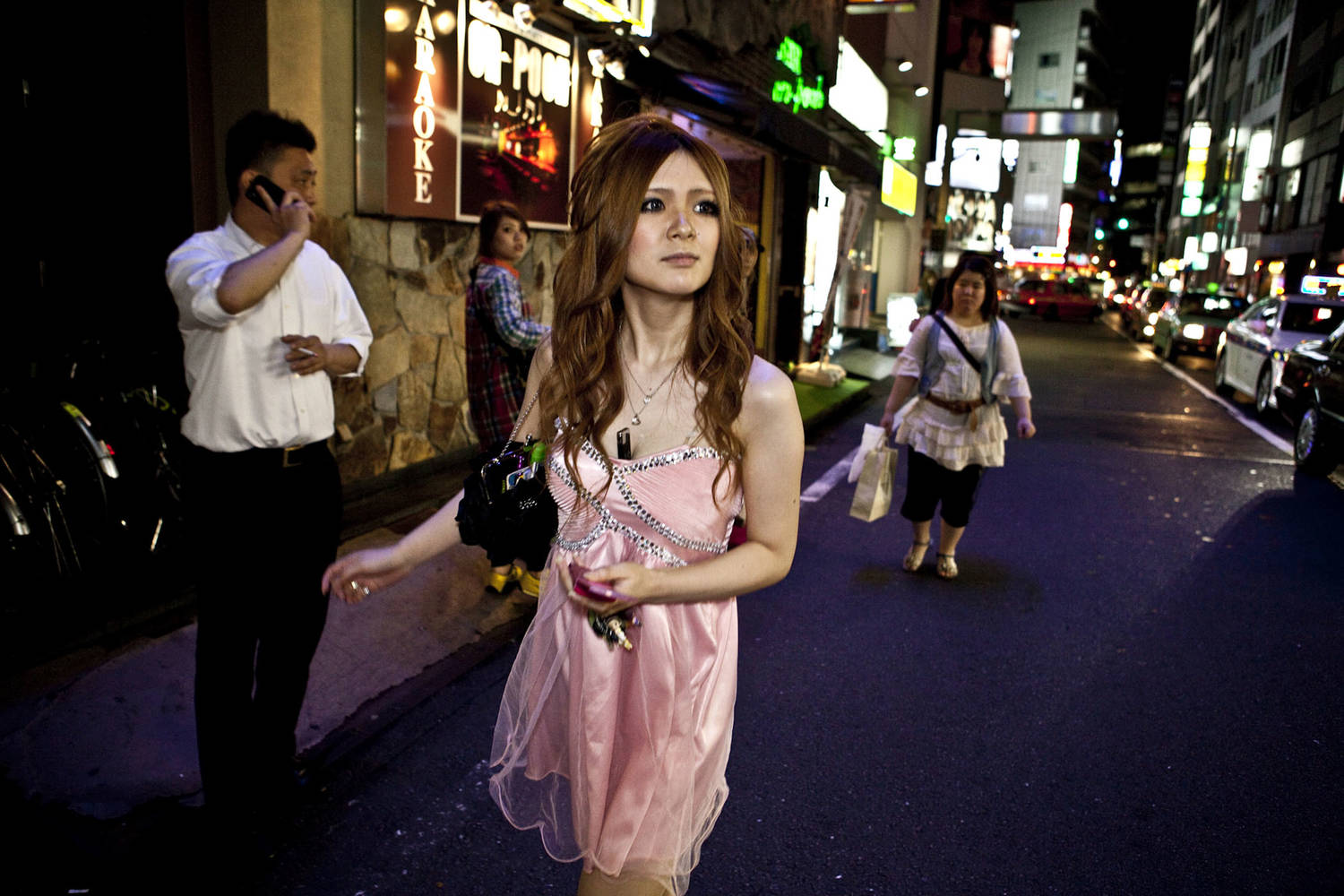Life's a Cabaret
Young female graduates are turning to "hostess" jobs in a male-dominated job market.
Japan's job market remains male-dominated, with only around 10% of managerial positions held by women compared with 43% in the US. For young female graduates working as 'hostesses', or kyabajo, offers a more lucrative and independent career path.
In Japan, a hostess is a young woman who entertains men at bars or clubs. Customers pay considerable sums of money for the pleasure of their company – for flirting but no sex. Once frowned upon, hostess jobs have been gaining popularity among young women. Despite the Equal Opportunity Law of 1986, Japanese women are often consigned to low-paid, dead-end jobs or temp positions. Only 65% of college-educated women are employed and women’s salaries are a third less than men’s. Though women can only work as hostesses when they are young, many young women see this profession as one of the few jobs that provide financial independence and opportunity.
When Karen Hanazuka, 24, entered her senior year of university, all her classmates traded their short skirts and skinny jeans for dark suits and started going to job fairs. Hanazuka didn’t join them. She had already decided to continue working as a hostess. “I didn’t go job hunting because there were no appealing jobs out there. Doing my hostessing job is worth much more,” says Hanazuka, who adopted the name Karen when she became a hostess.
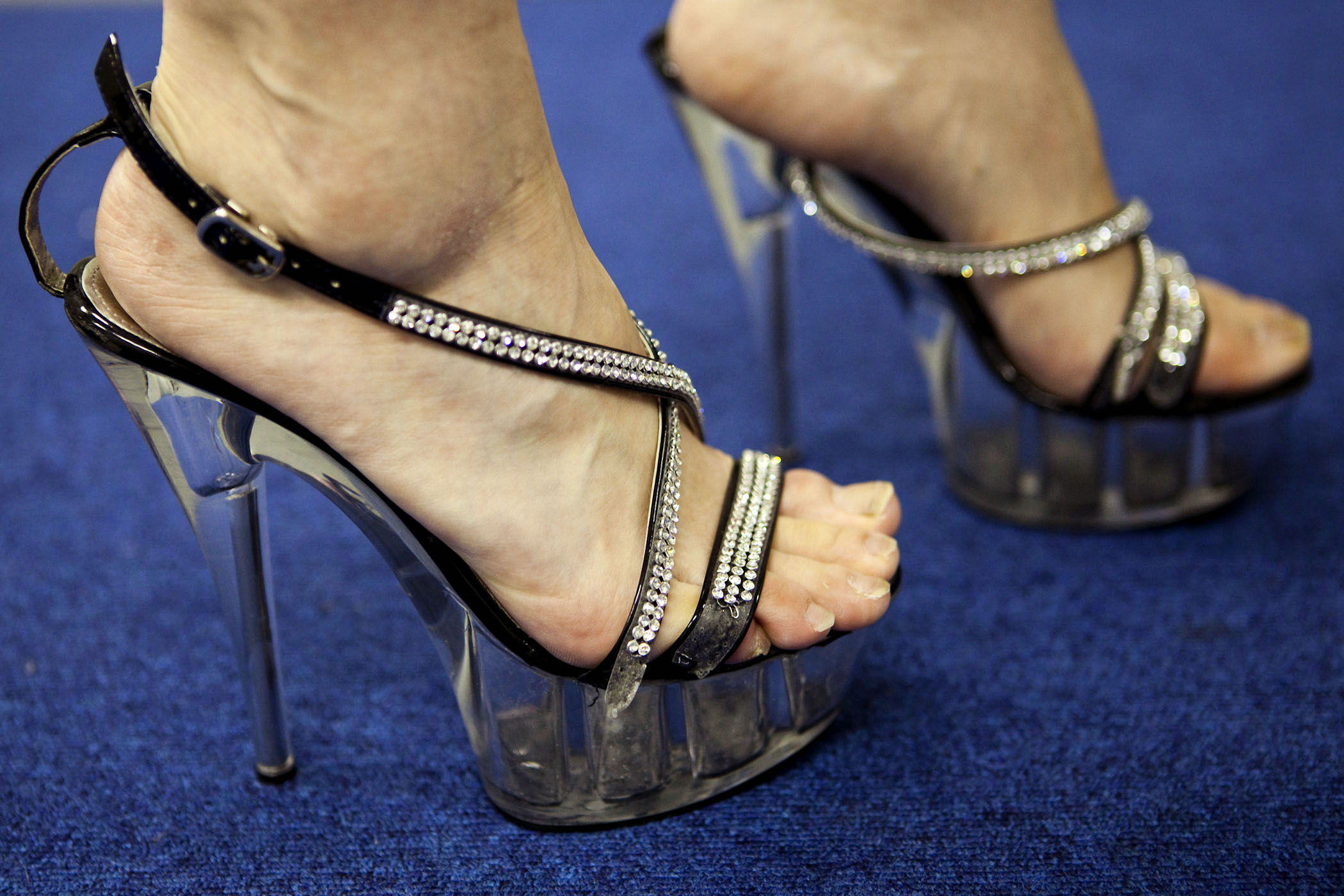


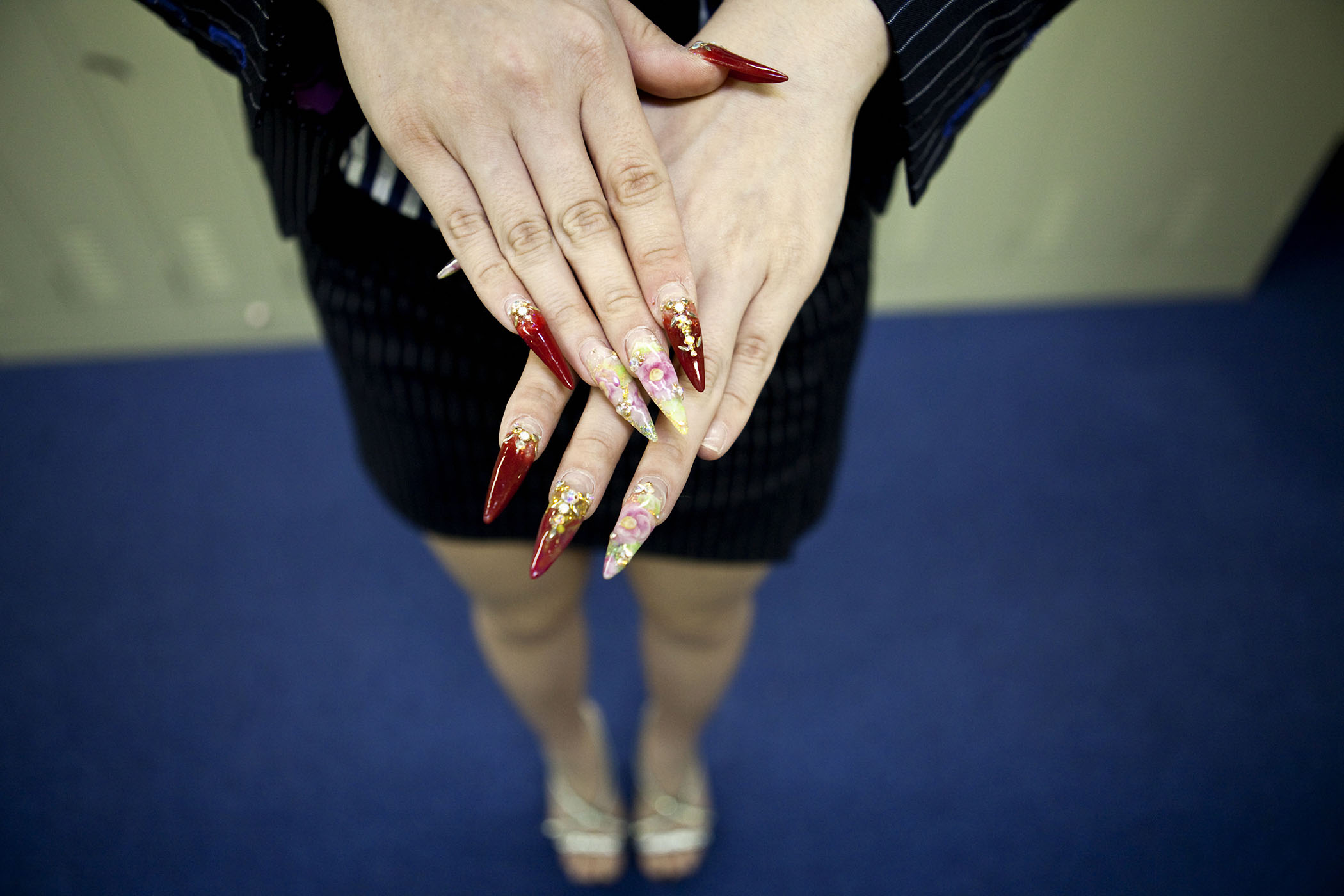
There are around 70,000 establishments in Japan that offer hostessing services for men according to Japan’s National Police Agency. Previously, hostessing was considered little better than prostitution but now, women working as hostesses are appearing on talk shows and television dramas. Some have become models, actresses and entrepreneurs. The profession has become a part of mainstream culture. Eriko Fuse, a representative of the cabaret club labour union, says that “there are many girls who dream of being a hostess these days, but there are also women who choose hostessing because there is no other work for women.”
Women’s low employment rate in Japan is “a significant lost economic opportunity for the nation,” according to Kathy Matsui, a managing director at Goldman Sachs Japan.
Even if a woman is fortunate enough to get a job, her career path can be rocky. On top of the income gap, women are rarely promoted to managerial positions. The percentage of female managers in Japan was 9.8 percent in 2008, compared with 42.7 percent in the U.S., according to the International Labour Organisation.
“You don’t need a resumé, an education or ID to apply for a hostess job. Hostessing provides jobs to women who can’t get day jobs.”
Eriko Fuse, a representative of the cabaret club workers' union.
Cocoa Aiuchi, 21, sighs as she looks inside a locker full of skimpy cocktail dresses in the changing room of the bar where she works as a hostess. “I don’t want to go to work” she murmurs. After weighing up between a few different options she picks a long, bright pink and blue dress and says “I buy too many dresses, but it helps to motivate me for work.” As a popular hostess and a model for a fashion magazine that caters to hostess readers, she receives fan letters from young girls at secondary schools whose dream is to work with her after graduation. Cocoa (the name she adopted as a hostess) says these girls think hostessing is an easy way to make money by looking pretty and flirting with customers over drinks. “They don’t know the tough reality.”
A hostess’s hourly rate is based on how many customers she can bring in. This merit system is a big incentive for ambitious women like Hanazuka who makes more than $300,000 a year. By contrast, the average salary of Japanese women with a full time job is $37,000 a year. But only very few hostesses are able to make this much money – and the job has its price.
Many hostesses suffer from health problems such as liver disease and alcoholism caused by late nights and constant drinking.
Aya, 22, says she wants to quit hostessing but feels there is nothing else she can do. When her parents divorced she dropped out of school and didn’t want to be a burden on her family so she started hostessing at 16. The legal age for hostessing is 18 but some bars don’t check girls’ ID.
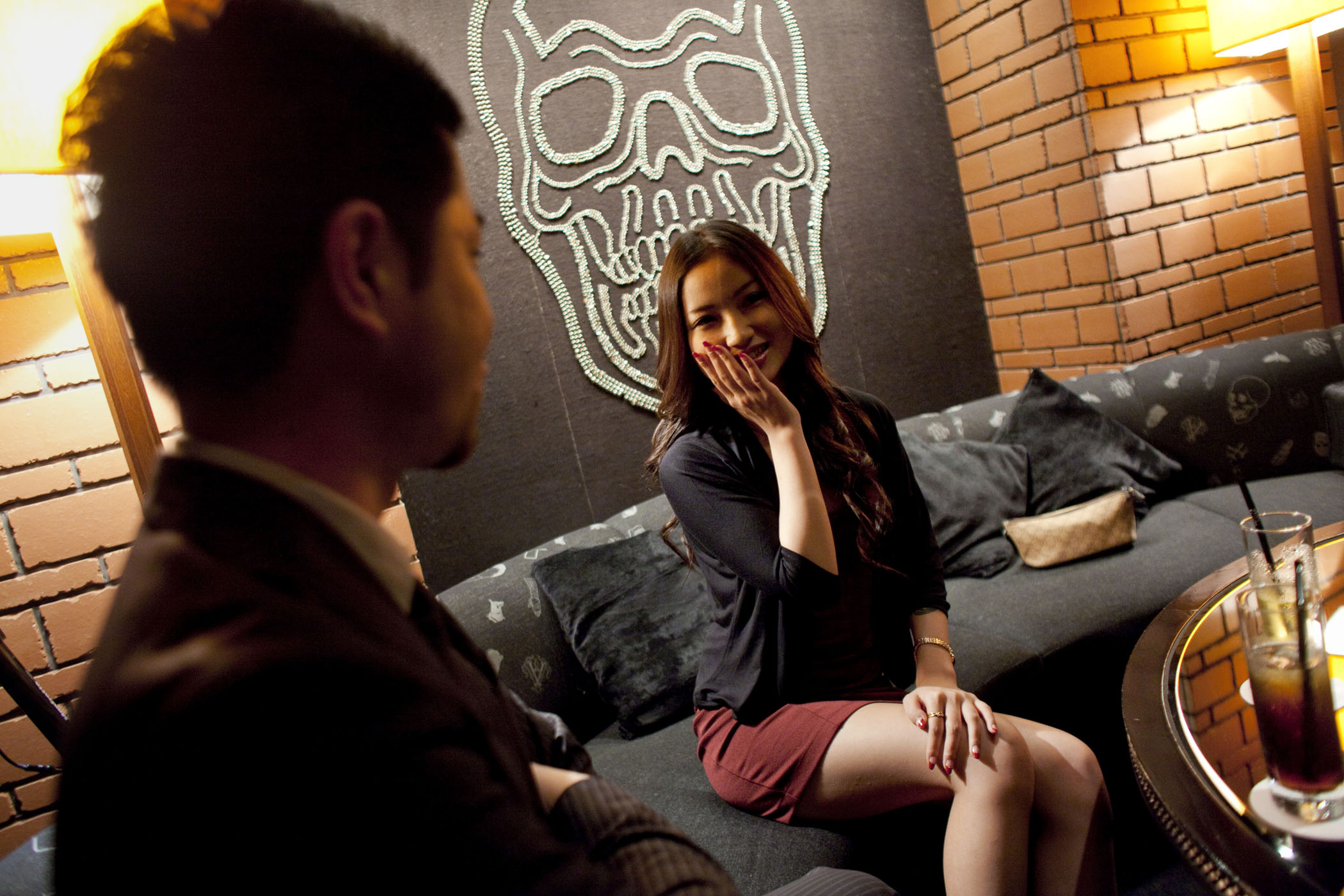
21 year old Aya with one of her customers in the bar where she works in Tokya. She says she wants to quit hostessing but feels there is nothing else she can do because she did not graduate from high school.

Aya leaves her apartment to go to work.

Aya gets in a taxi to go to work in Tokyo.

Aya started hostessing when she was 16 years old after she left home due to her parents' divorce.
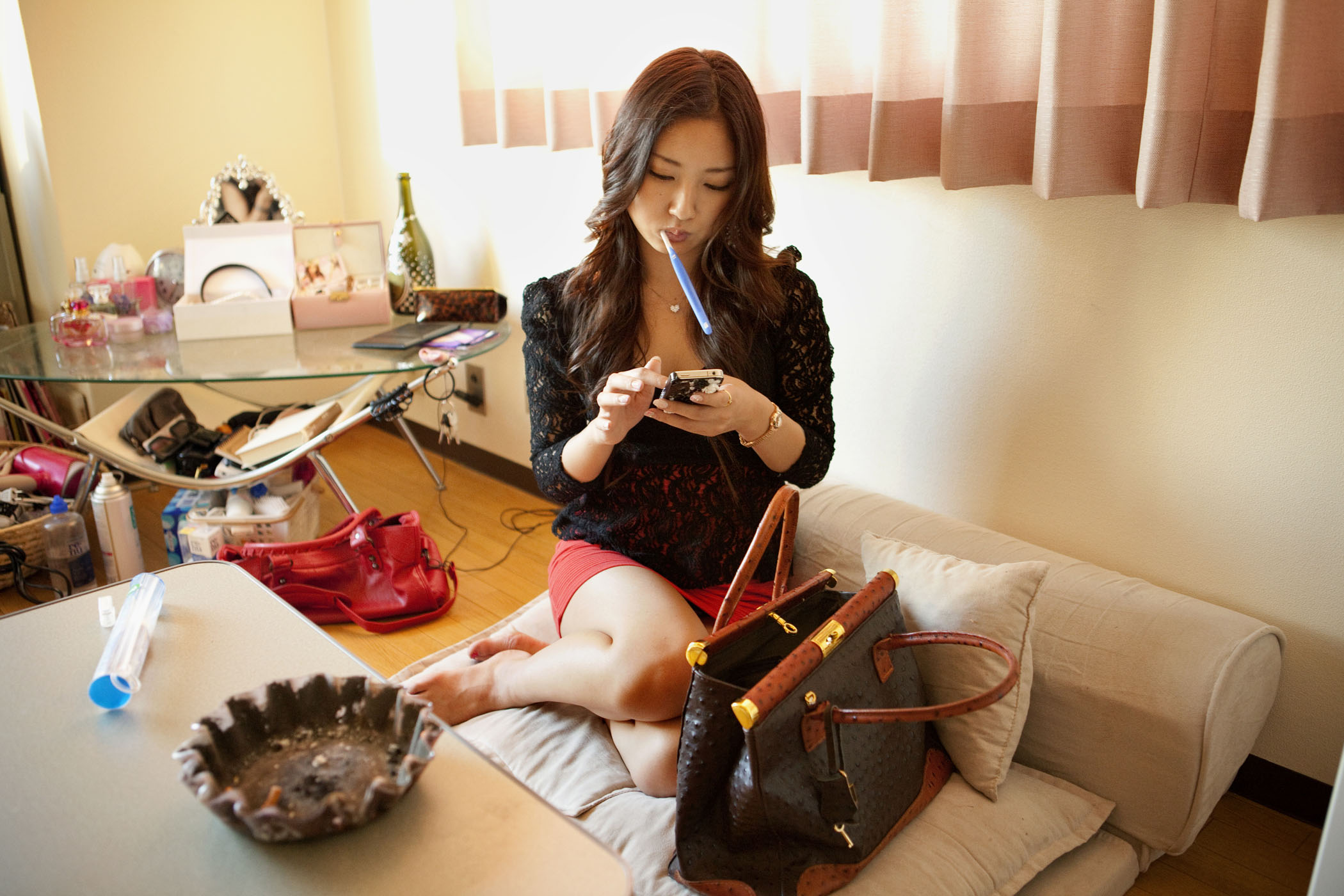
Aya sends text messages to her clients as she brushes her teeth before work at her apartment in Tokyo.

Perfume bottles on a table at Aya's apartment in Tokyo.

Many hostess bars and other sex clubs crowd the street of Kabukicho in Tokyo, one of the biggest red light districts in Japan.
Many hostesses experience verbal abuse and sexual harassment which lead to anxiety and depression. The obsession with sales figures and popularity ratings in most bars can become unbearable for some and clients’ disdainful attitudes can destroy many young women’s self-esteem.
When women become too “old” for hostessing, a life as a housewife is often seen as a logical progression. With salaries stagnating and increasing numbers of men working on temporary contracts though, few are able to afford to get married and support a family. Instead, women are required to go back to work after childbirth to top up their husbands’ wages.
Cocoa also wants to be a housewife, but she does not want to get married to a wealthy man like her customers. “A wealthy man will cheat on me. He may value me when I’m young and beautiful but once my expiration date comes, he will throw me away like trash.”

